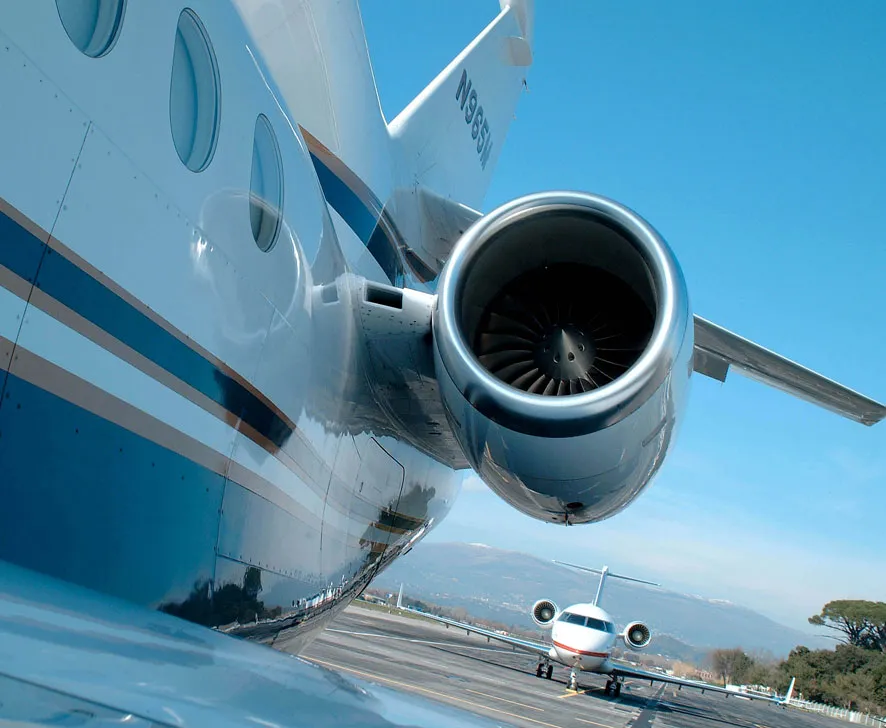Woodward, Hexcel’s merger takes off into a tumultuous time for aerospace

FORT COLLINS — The $6.3 billion merger of equals between Woodward Inc. (Nasdaq: WWD) and Hexcel Corp. (NYSE: HXL) is still on track, but it could end up operating in an aerospace industry grounded by the global spread of the novel coronavirus.
Weeks after the two companies won clearance to merge from U.S. regulators, Woodward and Hexcel’s merger is still on track to close by the end of the third quarter this year. But while the turmoil in the larger world economy doesn’t appear likely to cause either side to abandon the tie-up, a combined Woodward-Hexcel could be seeing a dramatically different aerospace market when it debuts.
Airliners and planemakers plead for support
The cascade of federal orders banning travel from Europe into the U.S. and the closure of non-essential travel between the U.S., Canada and Mexico last week has ground international travel in the country to a near halt, while major airlines are said to be considering a voluntary shutdown of almost all domestic flights as passenger rates plummet.
That sudden demand shock is forcing airlines to tighten their belts as much as possible, including reducing orders from airplane makers and the ecosystem of manufacturers such as Woodward and Hexcel that form the industry’s supply chain.
As of last count, Woodward employed 1,712 at its headquarters and five plants in Northern Colorado, while Hexcel employed 100 people in its Windsor plant.
However, cutting expenses doesn’t appear to be enough to keep airlines afloat. Industry trade group Airlines For America has asked Congress to provide a bailout of around $60 billion in grants, loans and tax deferments to prevent a collapse of the industry and cuts to the 750,000 jobs the industry provides.
“The current economic environment is simply not sustainable, and it is compounded by the fact that the crisis does not appear to have an end in sight,” the group said.
The bailout ask has drawn fire from corporate governance proponents and federal lawmakers alike, particularly in light of research from Bloomberg showing U.S. airlines spent 96 percent of free cash flow in the last decade for stock buybacks instead of saving or other expenditures.
America’s largest planemaker Boeing Inc. (NYSE: BA), which was already reeling from the prolonged fallout of its 737 MAX passenger jets being grounded around the world after two computer-caused crashes in 2018 and 2019 killed 346 people, separately pitched a $60 billion package for aerospace manufacturers.
On Monday, the aerospace giant said it would temporarily halt factory production in Washington state for two weeks to prevent the spread of the virus. That same day, Boeing’s European archrival Airbus SE said it extended credit lines, pulled its quarterly dividend and cut expenses to build a $32 billion pot of liquidity to weather the industry’s perils.
Other major suppliers are already feeling that pinch, as General Electric Co. (NYSE: GE) on Monday cut 10 percent, or 2,600 employees, in its aviation division and pivoted toward making medical equipment.
All three of those companies are major customers to both Woodward and Hexcel. Boeing alone accounts for 15 percent and 25 percent of the two companies’ respective net sales in fiscal year 2019, according to their latest annual reports.
GE makes up 14 percent of Woodward’s sales for that period, while Airbus was the source of 39 percent of Hexcel’s revenue.
A question for the entire economy
Richard Aboulafia, an aerospace industry analyst with the Teal Group, told BizWest the aerospace supply chain likely won’t change very much unless there are a string of massive bankruptcies.
However, aerospace is in the same boat as dozens of other industries struggling to stay solvent in the face of everyday life being halted.
“Either the government intervenes, the market comes back, and that’s an epidemiological question, or everybody just takes a severe depression-like hit, and hopefully, it’s not number three” he said. “Those are for any company in the U.S. or indeed the world.”
The Federal Reserve has already made historic moves to keep credit flowing through the U.S. economy, including announcing it would buy unlimited amounts of government and corporate bonds.
As of Tuesday afternoon, congressional leaders had yet to agree to a multi-trillion dollar spending bill, which would send at least $1,000 per month to every American adult, offer bailouts to large industries including airlines and small businesses and make novel coronavirus testing free, among other things.
Defense and wind a small portion of the equation
Both companies are diversified outside of civilian aerospace, primarily in selling to defense contractors and wind turbine manufacturers. Hexcel in particular makes composite materials for turbines at its Windsor plant.
However, they have far different levels of exposure.
Woodward’s non-commercial aerospace revenue last year was $1.74 billion, making up just over 60 percent of its revenue. However, Hexcel is far more reliant on commercial aerospace; 32 percent of Hexcel’s revenue came from sources outside the segment.
Jesse Broehl, a wind industry analyst at Guidehouse, told BizWest the downturn in the civilian aviation industry gives Woodward and Hexcel a reason to continue its merger because it can offset more of its losses with relatively steady revenue on the renewables side.
Turbine makers will see modestly lower installation rates through 2020 and 2021 because of the economic effects of the COVID-19 virus, he said, but that negative impact won’t be nearly as bad as it is for the commercial aerospace side.
Broehl said while the infection rate curve remains worrying for the U.S. and Europe, the flattening of that curve in Asian countries is a sign the spread of novel coronavirus can be controlled.
“Hopefully, the trend should eventually follow in the U.S. and other countries, and businesses and markets such as the wind power industry will return to a post-pandemic new normal,” he said.
Aboulafia doesn’t expect any shift in governmental defense spending due to the novel coronavirus outbreak.
Woodward: long-term demand for flights still strong
Woodward director of investor relations Don Guazzardo told BizWest the companies see the current situation as a short-term problem, but believe the prospects for profit in a decade’s time still look strong.
He argues prospects for the aerospace industry are fundamentally strong in the years after the COVID-19 outbreak subsides because there will be continued demand for travel, particularly in China and other developing economies.
While he believes it’s likely that some suppliers and airlines will collapse from the sudden economic pain, other companies within the aerospace supply chain will be able to fill that void.
“We’re all going to share in the pain, there is no doubt about that,” he said. “But I would still go back to our belief that the merger is a long-term play and Woodward and Hexcel are both thinking in terms of more like decades.”
Aboulafia agreed in part, but suggested the pandemic could promote real de-globalization and restrict the flow of relatively free travel and trade as countries consider ways to prevent cross-national spread of future diseases.
He remains bullish on the long-term prospects for commercial aerospace.
“It’s not like people are building giant fortresses,” he said.
© 2020 BizWest Media LLC
FORT COLLINS — The $6.3 billion merger of equals between Woodward Inc. (Nasdaq: WWD) and Hexcel Corp. (NYSE: HXL) is still on track, but it could end up operating in an aerospace industry grounded by the global spread of the novel coronavirus.
Weeks after the two companies won clearance to merge



